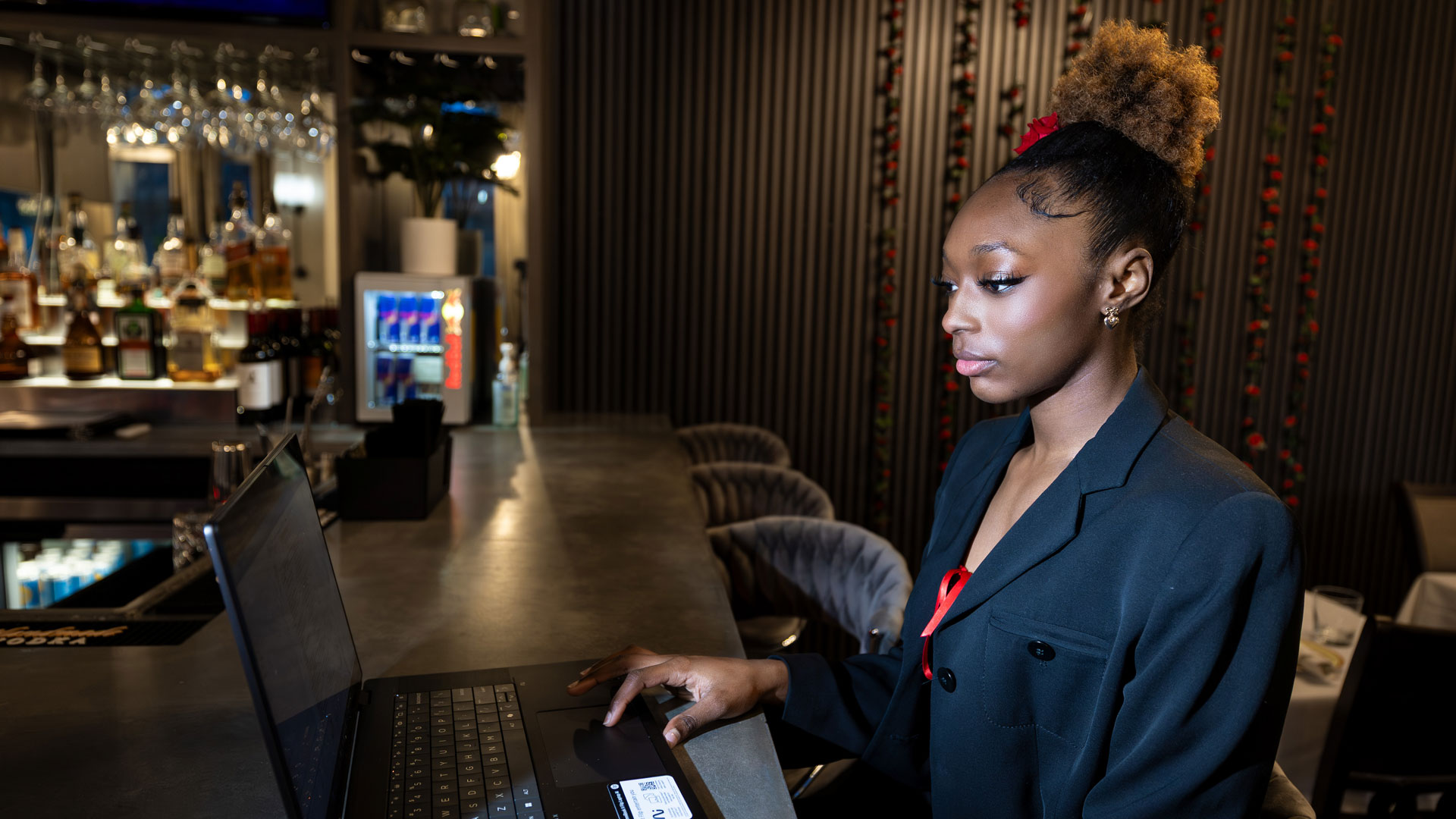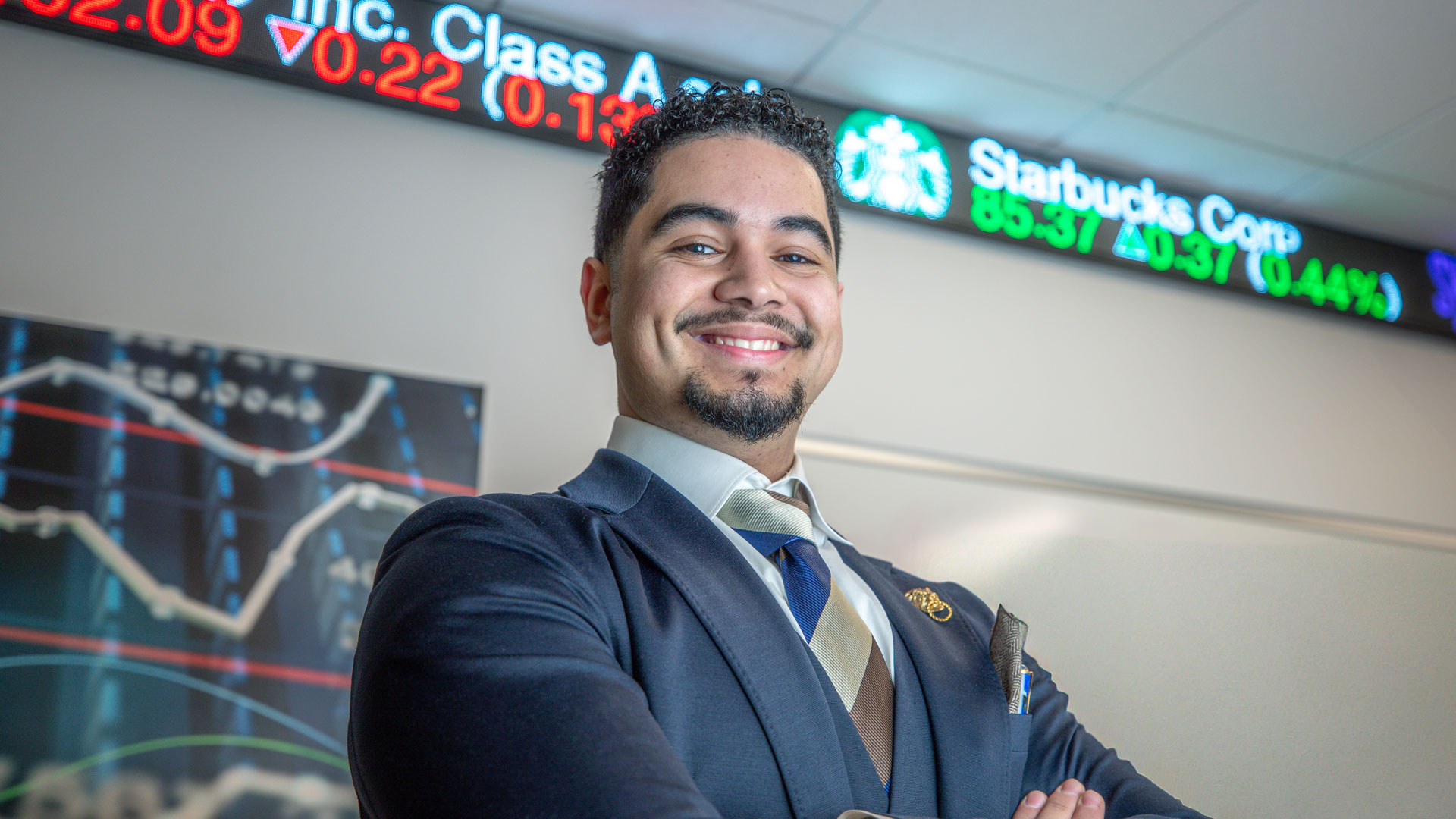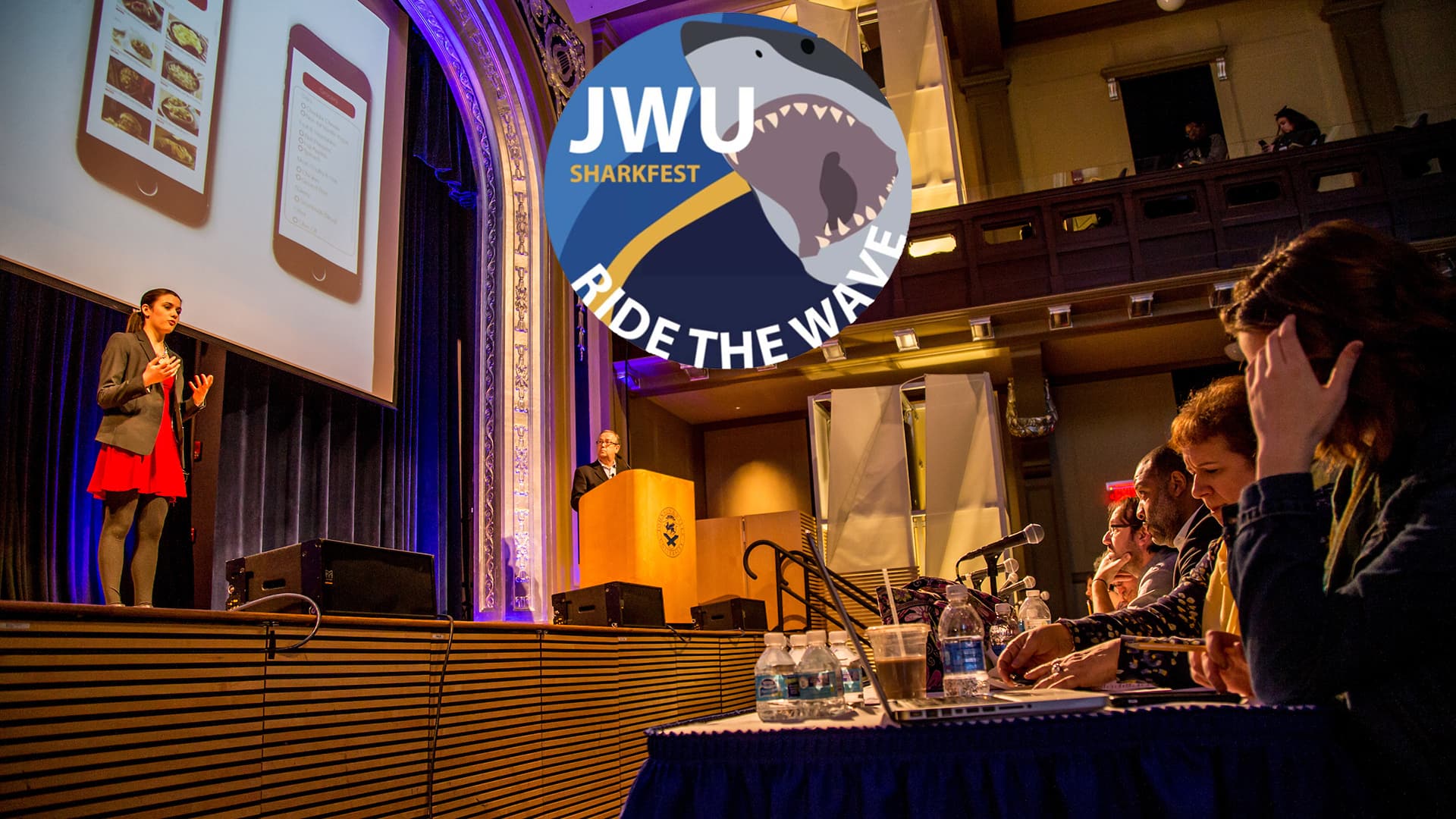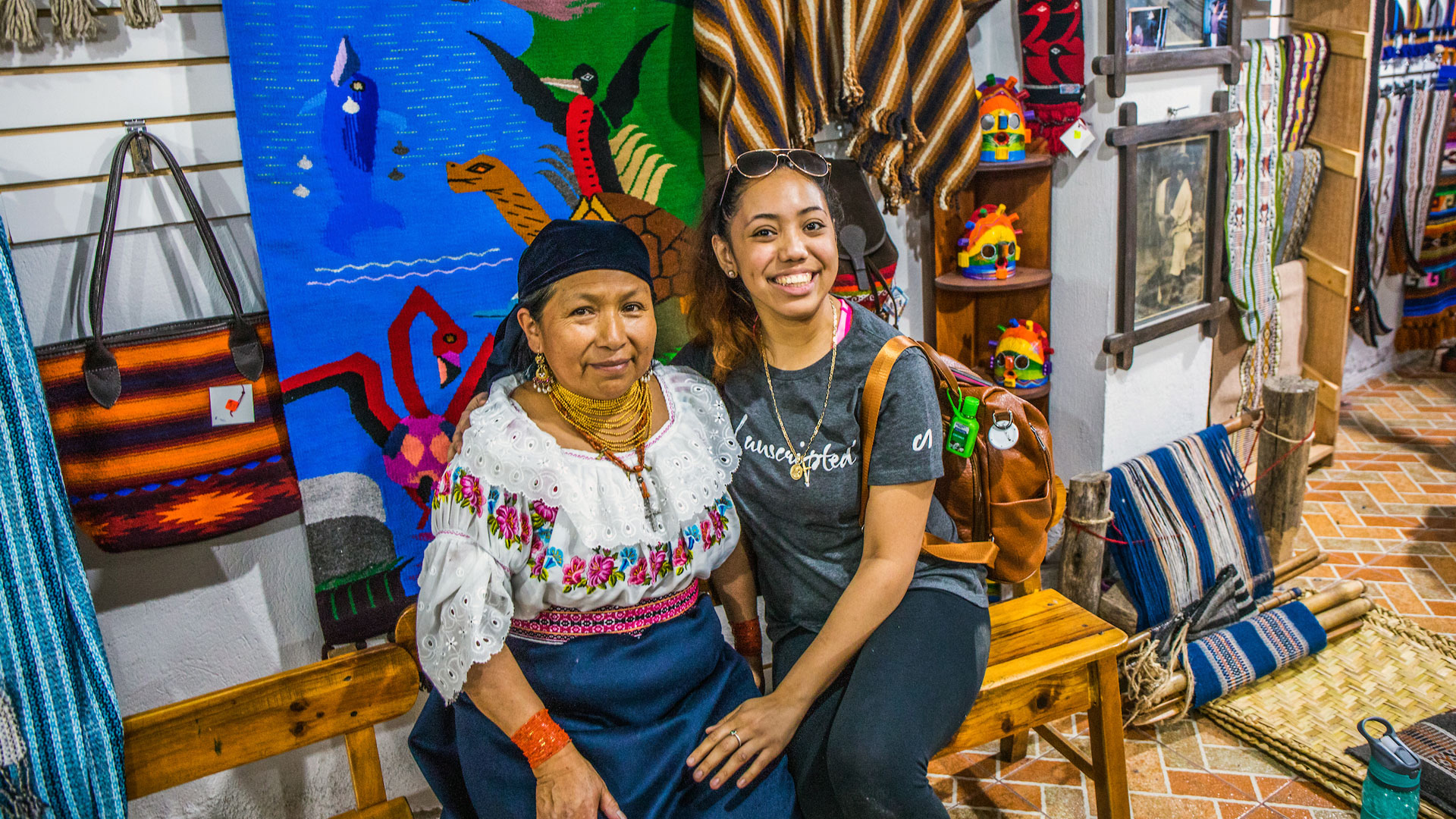Hospitality Icon Roger Dow Offers Advice to Students
Hospitality industry legend Roger Dow ’09 Hon. captivated his student audience at the keynote session of JWU Providence’s third annual Hospitality Summit. Speaking with JWU Providence Campus President Marie Bernardo-Sousa LP.D. ’92, Dow described his careers with Marriott and as president and CEO of the U.S. Travel Association. He also shared his ideas for the future of the hospitality industry and provided valuable advice to JWU students to help them navigate their careers.
Make the Right Connections
Roger Dow shared, “relationships are everything,” and he emphasized the importance of making connections. One of the keys to Dow’s early career success was that he connected with people who helped him realize his potential. He started in the hospitality business as a hotel lifeguard in New Jersey at Marriott’s sixth hotel. He made an impression on the hotel’s general manager, William Tiefel ’98 Hon., who encouraged Dow to pursue a career with Marriott, predicting that the company would someday have 100 hotels. (Marriott has over 8,500 today!)
“You will face ‘inflection points’ in your life. Listen and watch for them.”
Later, while working as a manager in housekeeping, Dow learned about jobs in hotel sales and set his sights on moving to the sales department, telling anyone at the hotel who would listen that he really wanted to work in sales. When a position opened, the director of sales offered Dow the job. He accepted and worked his way up through sales and marketing to the company’s top marketing job. Under Dow’s leadership in marketing, Marriott started the first hotel frequent-guest program, Marriott Rewards (now titled Marriott Bonvoy).
Be Ready When Opportunity Knocks
While describing his path of five careers over 52 years, Dow told the students in the audience how important it is to be ready to take risks and to be ready for opportunities. “You will face ‘inflection points’ in your life. They come along every few years. Listen and watch for them.” One such inflection point came after his retirement from Marriott, when a friend and former colleague called and asked him to lead the U.S. Travel Association, a national nonprofit organization that advocates for the travel industry. At the time, Dow said, “the travel industry had no respect. Politicians did not understand it.” He accepted the job because he saw an opportunity to educate the government and the public about the importance of travel and hospitality.
In his work at U.S. Travel, Dow said, “I got to play with everybody.” He worked with all the big airlines, cruise companies and hotel companies. Presidents, too. After President Obama made a public criticism of bankers who took lavish trips to Las Vegas while banks were being bailed out by the government, the hotel industry suffered. Corporations cut back significantly on travel because they were worried the public would think they were wasting money by sending employees on trips. The people who were affected most by this travel slowdown were hardworking hotel staff such as housekeepers and servers.
Dow and U.S. Travel gathered a group of Chief Executive Officers from hotel and travel companies and brought them to the White House to explain the value of travel and hospitality for Americans and for the economy. (1 out of 10 people work in the travel/hospitality industry; that’s 1 in 10 voters.) The meeting was a success, and the newly formed CEO Roundtable has been invited back multiple times to meet with presidents to discuss the travel industry.
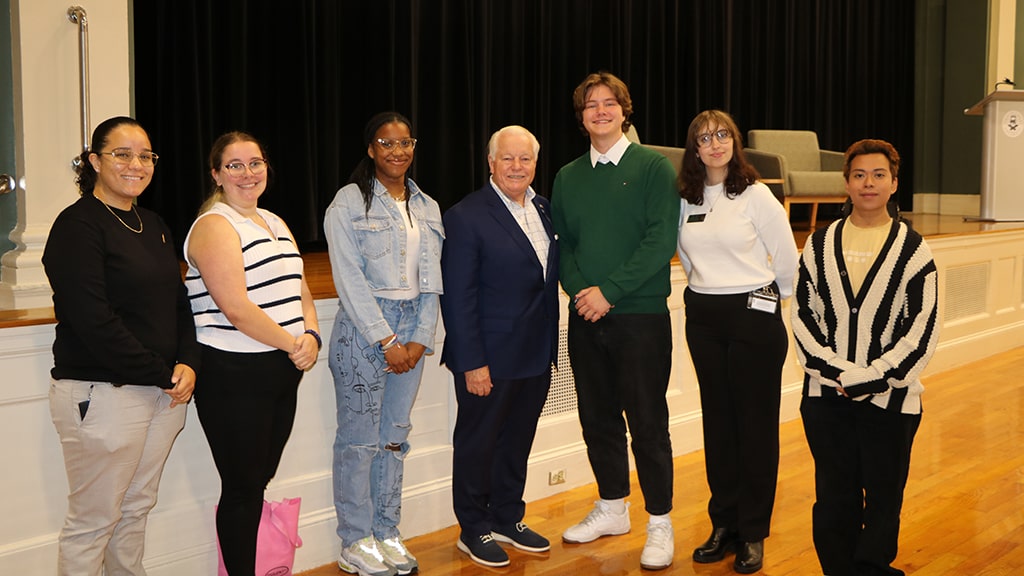
Use Creativity to Solve Workforce Challenges
Dow told the students how valuable they can be if they can think beyond problems and offer creative solutions. When President Bernardo-Sousa asked Dow to identify the biggest challenge that future hospitality leaders will face, his answer was that there is an ongoing shortage of workers. COVID-19 caused industry employment to drop from 17 million workers to 8.5 million. The number is back up to 15.5 million, but that is not enough workers to support the needs of hotels, restaurants, airlines and the other businesses in hospitality and travel.
“Being supportive makes the good times better and the bad times easier to handle.”
One solution to the shortage of workers: creativity and technology. Dow co-founded FutureWrx Solutions, which uses an app to connect workers with hospitality and travel companies looking for staff. Dow says it operates like “Uber for hospitality workers.” Workers control their shifts, and if they get a high rating at a specific place, they get first priority for shifts that open up. Rather than having to limit themselves to one employer, workers can try out different operations and decide where they like working. Also appealing to workers: using the app is faster and easier than the traditional application process.
10 Things Your Professor Never Told You
Roger Dow finished his talking points with a list of guidelines for students, which he called “10 things your professors never told you.” His advice included speaking and writing at every opportunity, listening, enjoying life and genuinely caring about others. In a supporting document he supplied to the students, Dow explained his point about caring, saying, “Consider the respect you show to the doorman — this should be on par with how you treat your boss or any important person in your life. Being supportive makes the good times better and the bad times easier to handle.”
About JWU’s Hospitality Summit
The keynote session with Roger Dow was the kickoff event for the annual Hospitality Summit, which brings together students, alumni and industry leaders to explore trends that shape the future of the hospitality industry.
The theme of the 2023 summit was “Reimagining Hospitality: People, Passion & Purpose.” The summit also included a panel presentation about “Increasing Ownership Diversity in the Hotel Industry,” a Hospitality Career Panel featuring six professionals and a networking reception for students and executives. The Hospitality Summit is organized by JWU Providence’s International Hotel School of the College of Hospitality Management.
